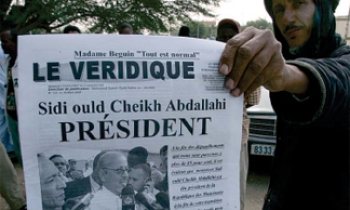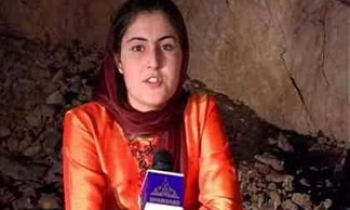New Delhi, July. 9 (PTI): Trial by media has come under the scrutiny of an official committee drafting the proposed broadcasting code and guidelines which recommends that broadcast service providers (BSPs) "should avoid" such activism since "a man is innocent till proven guilty by law".
The guidelines, drafted by a sub-committee under the Information and Broadcasting Ministry, feels that "news should not jeopardise any ongoing criminal investigations and should exercise due care" in such cases.
"BSPs should avoid a trial by media since 'a man is innocent till proven guilty by law'. In such cases, care should be taken to present both sides of the story and present a balanced view," the committee recommends.
Under attack from the media over the draft guidelines and a draft bill to regulate the broadcast media, the government has, however, said these were only drafts for discussion and not not the final official product.
In the section 'Impartiality, Accuracy and Undue Prominence of Views and Opinions', nineteen points have been recommended to ensure that news, in whatever form, is "reported with accuracy and presented with due impartiality".
"With ever-increasing number of round-the-clock news channels and the intense competition among them for the eyeballs and changing priorities as to what constitute news, news and current affairs contents of television call for some discipline with specific guidelines," the proposed code notes.
It calls for "utmost care and caution" by news and current affairs channels in their audio-visual presentations and selection of themes.
"Good taste should guide the selection and presentation of news. Morbid, sensational, or alarming details not essential to factual reporting should be avoided," the proposed guidelines recommends.
Further, it recommends that no material should be presented in any manner that creates public panic and unnecessary alarm. "Ensure that nothing is broadcast which is likely to encourage or incite to crime or to lead to disorder or to be offensive to public feeling," it says.
The guidelines say that news should be reported with due accuracy and presented with due impartiality. "Any mistakes in news should be acknowledged and corrected on air, maximum within a week after coming to notice of the mistake. Corrections and apology should be scheduled appropriately and also in the same time band where the initial error had occurred," they say.
The guidelines recommend that news should be well balanced and the SP shall endeavour that news is comprehensive and factual material is presented accurately and all viewpoints represented fairly.
"Commentary and analysis shall be clearly distinguished in the news and actual news should precede the commentary and analysis. Views and facts must not be misrepresented," they say, adding that any personal interest of a reporter or presenter, which would call into question the due impartiality of the programme, must be made clear to the audience.
Also, it recommends avoiding any scene/clipping/footage depicting excessive violence, nudity, obscenity and vulgarity, not suitable for viewing by children and in family settings.









